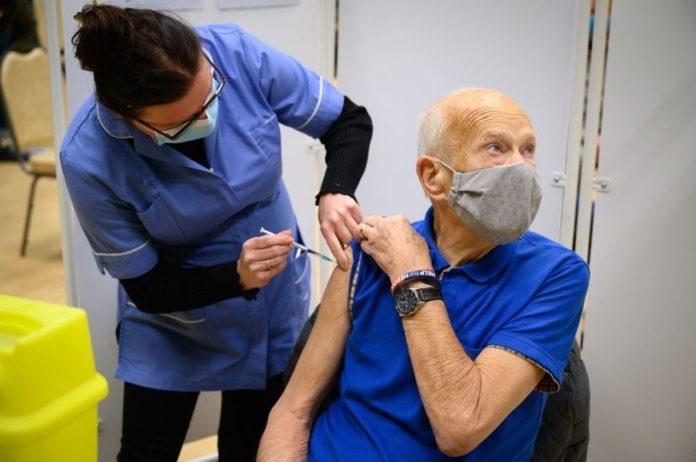A widespread pre-printed study stating that the risk of developing an inflammation of the heart known as myocarditis is 1 in 1,000 has been withdrawn because of a math error.
The study, conducted by researchers at the University of Ottawa Heart Institute, appeared on numerous blogs and social media posts as evidence that the COVID19 vaccine is not safe to use.
“New Study Shows 1 in 1000 Develop Heart Inflammation After Covid Vaccination; Myocarditis and Other Related Heart Conditions Have Increased Death Rate Within 5 Years,” said the headline of an article published on September 21 on The Gateway Pundit reads ( archive.is/t0XC3).
Examples of claim made on on social media are available at (here), (here), and (here).
Other links to blogs referencing the retracted study can be found (archive.is/wip/aZzjV) and (archive.is/Lxnl2).
The study was first published on September 16 on the platform MedRxiv, a website that publishes studies that have yet to be peer-reviewed (here).
Studies go through a process known as peer review, where experts in a particular field analyze the piece to ensure its accuracy and judge it to be of a high academic standard (here), (emory.libanswers.com/faq/24265).
The pre-print paper that has since been withdrawn is viewable in full (archive.is/pvggn).
The research had calculated a post-vaccination myocarditis incidence rate in the Ottawa area by dividing the number of cases of cardiac inflammation during a two-month period (June and July 2021) in Ottawa (32) by the total number of vaccinations in the area. (reported as 32,379 in the pre-print).
The cases of myocarditis, using these figures, equates to 10 for every 10,000 doses of the vaccine.
The pre-print paper had used an incorrect figure for the number of doses administered in Ottawa over that two-month period, however.
However, the study had used an incorrect number for the number of doses administered in Ottawa during that two-month period.
Between the week of May 30 and the week of July 25, 845,930 shots were administered in the Ottawa area, well above the number used to calculate the incidence rate, according to Ottawa Public Health (32,379) (here).
The denominator (the total number of vaccines administered over a two-month period in Ottawa) used to calculate the incidence rate of myocarditis in the study was approximately 25 times the correct value.
The paper was then retracted on September 24 and in a statement the researchers stated:
“Our reported incidence appeared vastly inflated by an incorrectly small denominator (ie number of doses administered over the time period of the study). We reviewed the data available at Open Ottawa and found that there had indeed been a major underestimation, with the actual number of administered doses being more than 800,000 (much higher than quoted in the paper)” (archive.is/UCKQK).
“In order to avoid misleading either colleagues or the general public and press, we the authors unanimously wish to withdraw this paper on the grounds of incorrect incidence data,” they added.
The University of Ottawa Heart Institute released a statement saying that they were “sorry this error led to misinformation about the incidence of post-vaccine myocarditis” ( archive.is/wip/wJUnt ).
Meanwhile, numerous blog posts that reported on the study did not issue an update on these blogs regarding the retraction, nor did they mention that this study was a pre-print that had not been reviewed.
In response to the retracted pre-print, a spokesperson for the Centers for Disease Prevention and Control (CDC) sent Reuters a study released on September 3 which monitored adverse events following mRNA vaccines between December 14, 2020, and June 26, 2021, with data from Vaccine Safety Datalink. ( here ).
“Analyses of all ages combined did not detect a significant association between myocarditis/pericarditis and mRNA vaccines,” the report noted, although adding that there was evidence of “an association between mRNA vaccines and myocarditis/pericarditis in younger individuals”.
The latest CDC guidance states that young men are at greater risk of getting myocarditis after the second dose of an mRNA vaccine, although the benefits of the vaccine still outweigh risks (here).
Image Credit: Getty
You were reading: A preprint study showing the risk of myocarditis post-vaccination was withdrawn due to a math error
